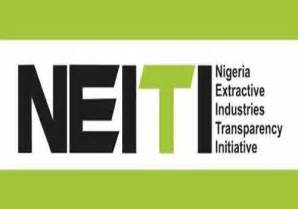… NNPC deducts N757.5bn at source
Nigeria’s financial flows from the oil and gas sector have recorded a continuous decline, according to the latest report of the Nigerian Extractive Industries Transparency Initiative (NEITI).
The report covering the sector’s activities for the year 2016, released Friday in Abuja, revealed that Nigeria earned a total of $17.05 billion from the oil and gas sector in 2016, a 31percent decline on the $24.79 billion generated in 2015, and a 75percent plunge on the sector’s peak earnings of $68.44 billion earned in 2011.
The report showed that the 2016 figure of oil proceeds is the lowest the country has recorded in 10 years and the fifth lowest in the 18 years between 1999 and 2016 covered by NEITI’s audits.
Following the slump in the global oil market in 2008 and 2009, Nigeria’s oil sector rebounded in 2010 with a 49percent increase in total financial flows to $44.94 billion, followed by the peak of $68.44 billion in 2011. However, flows from the sector have been trending downward since that peak year with $62.94 billion generated in 2012, $58.08 billion in 2013, $54.56 billion in 2014, and $24.79 billion in 2015.
Similarly, oil production have consistently been on the decline with 866 million barrels produced in 2012, 800 million barrels in 2013, 798 million barrels in 2014, 776 million barrels in 2015 and 659 million barrels in 2016, according to data from the various NEITI audits.
Details of the report revealed that the plunge in revenue in 2016 resulted from the low oil prices in the global market, combined with reduced oil production in Nigeria, which was caused by disruption and vandalism of oil assets, spike in crude theft, among others.
An analysis of the report showed that total oil production in 2016 was 659 million barrels as against 776 million barrels produced in 2015, representing a 15percent drop. Losses due to crude oil theft and sabotage rose from 27 million barrels in 2015 to 101 million barrels in 2016, an increase of 274percent. “This was aside losses due to deferment, which in 2016 was put at 144 million barrels which also went up by 65percent when compared to the 87.5 million barrels in 2015,” the report said.

“The bombing of the under-water 48-inch Forcados Oil Loading/Export Pipeline was one of many major occurrences that befell the industry in the year under review,” it added.
This incident which occurred in February 2016 made the Forcados line in-operational for seven months. Shell Petroleum Development Company (SPDC) declared force majeure on lifting from Forcados on 21st February 2016. Companies injecting into the Forcados Terminal such as SEPLAT, Panocean, Midwestern, Energia, Platform, Pillar, Waltersmith, and Excel were forced to shut down production for over 147 days.
Compounding the situation further, SPDC again declared force majeure on the Bonny Terminal due to a leak in Nembe Creek Pipeline between May and July 2016 while Nigeria Agip Oil Company (NAOC) declared force majeure on the Brass Terminal between July and August 2016. Similarly, Mobil Producing Nigeria (MPN) Unlimited declared Force Majeure twice between May/June and July/October 2016. This was due to a drilling process disruption and damage to the Qua Iboe Terminal (QIT) loading system, these incidents resulted to devastating consequences on the Nigerian oil and gas sector.
For instance, data showed that due to force majeure MPN’s total production within the four-month period fell to 4,616,825bbls, which is less than half of what was produced in each month previously as reflected in Department of Petroleum Resources (DPR) reconciled sign-off records.
Meanwhile, the 2016 report revealed a shift in Nigeria’s oil industry’s history as crude oil produced from Production Sharing Contracts (PSCs) hit 324 million barrels, surpassing output from the Joint Ventures (JVs) which was 289.1 million barrels. This is as against the 320 million barrels accounted for by the PSCs and 375.5 million barrels for JVs in 2015.
“PSCs, a production arrangement introduced in 1993, thus became the leading production arrangement in 2016. The PSCs are mostly offshore, thus insulated from vandalism and sabotage, and are not constrained by adequacy/availability of equity funding by the Federation. This change in production structure pushes to the fore the need to renegotiate the terms of the PSCs as stipulated in the Deep Offshore and Inland Basin Production Sharing Contracts Act of 1993 so as to increase government’s take,” the report noted.
Furthermore, the report revealed that contribution of the oil and gas sector to GDP dropped from 9.5percent in 2015 to 8.3percent in 2016, total gas produced in 2016 was 3,051,249mmscf, out of which 288,209mmscf was flared, representing 9.45percent of production. It also showed that a total of 126 million barrels, valued at $5.48 billion or N1.37 trillion was earmarked for domestic consumption.

“From the money for domestic crude allocation NNPC deducted upfront N512 billion for JV cash call, N126.5 billion for pipeline repairs and maintenance, N99 billion for petrol under-recovery (subsidy) and N20 billion for crude losses,” the report stated.
Also a total of 101 million barrels of crude oil, valued at $4.4 billion was recorded as losses in the year under review, due to theft and sabotage. A breakdown of this shows that Seplat and SPDC alone reported 81 million barrels of crude oil as losses due to sabotage while 20 other entities reported 19.8 million barrels as losses due to theft.
According to the report, dividend, loan and interest repayment by the Nigeria Liquefied Natural Gas (NLNG) for 2016 was $390.2 million, as against $1.07 billion recorded 2015, a decline of 63.5percent.
The 2016 NEITI report which covered 84 entities, comprising 10 government agencies, seven power generating companies, 62 oil and gas companies, three refineries, the NLNG and NGC also showed that $8.2 billion was budgeted for cash calls in 2016 out of which $5.5 billion was released and $4.9 billion paid.





























newtown casino free credit 2018
December 24, 2018 at 5:04 am
This can help you out if these linked sites have a good page ranking in Google or other popular search
engines. Write them all down as proceeding because you want to need them
again here in a moment.
918 kiss
December 28, 2018 at 3:39 am
Now I buy this method in you will discover and have had very limited success as well as.
Using a good page URL when writing your blog is often missed with lot of individuals.